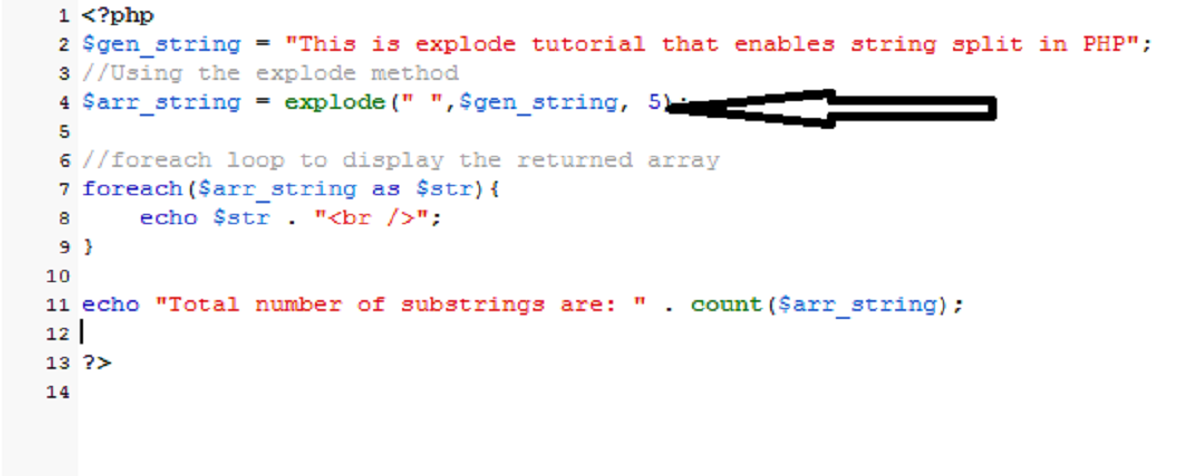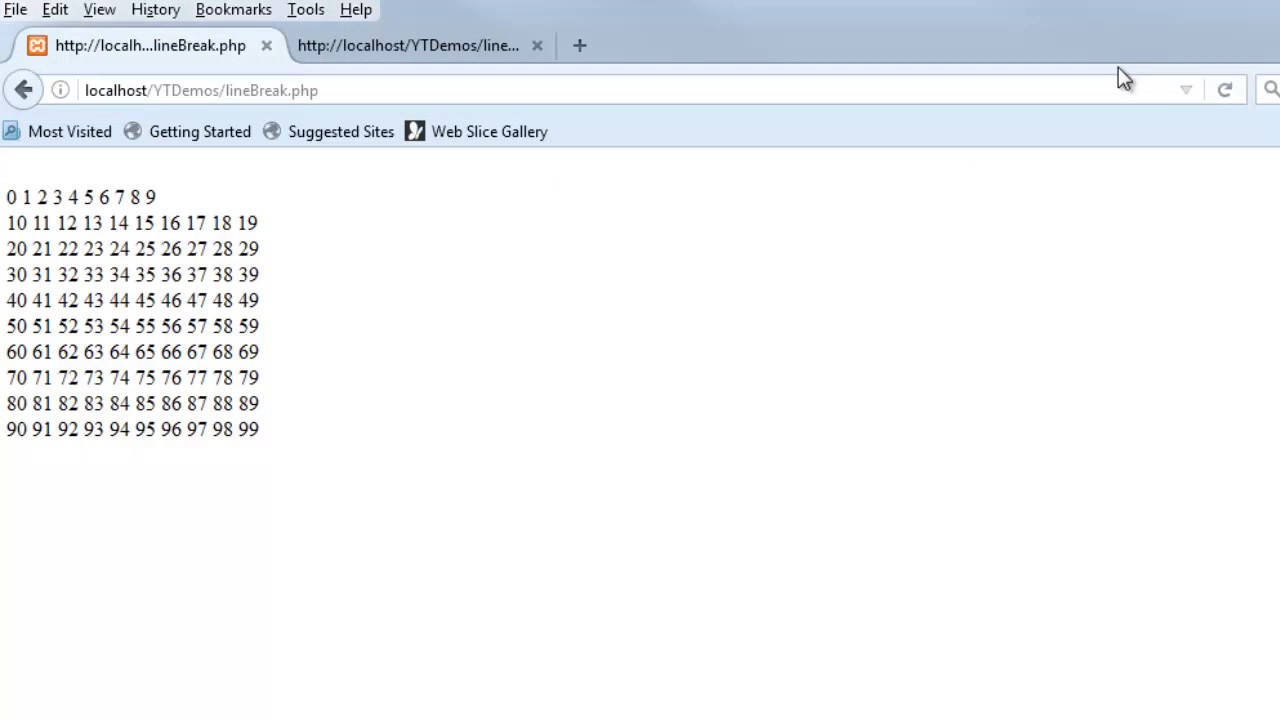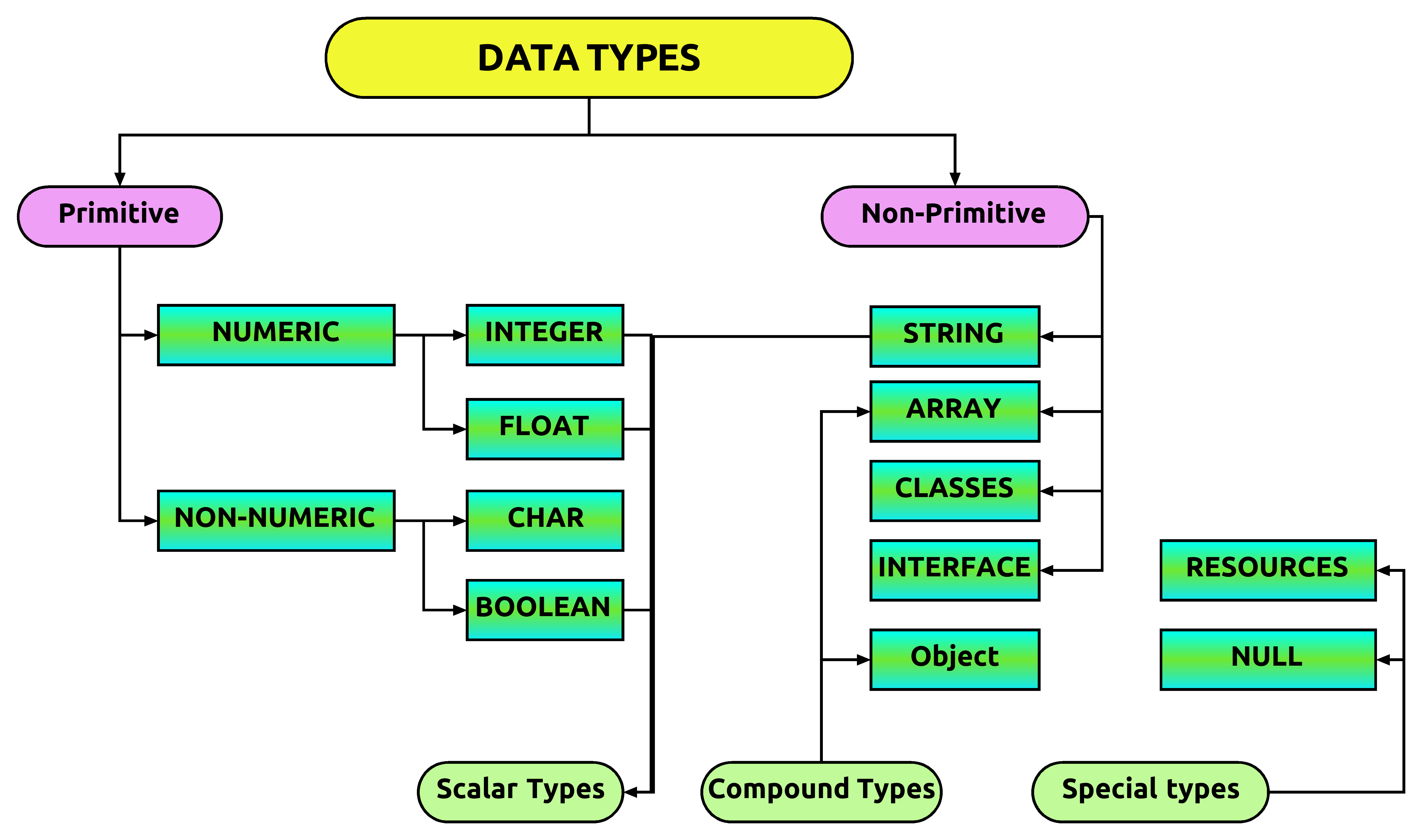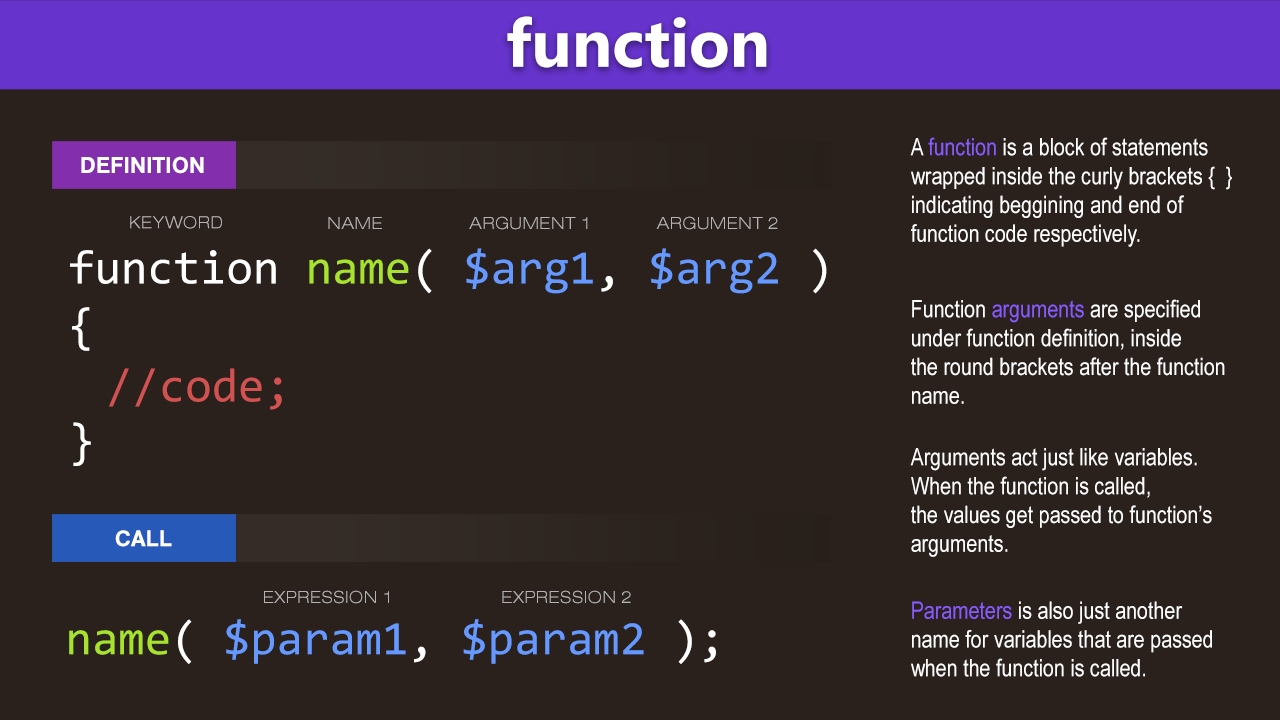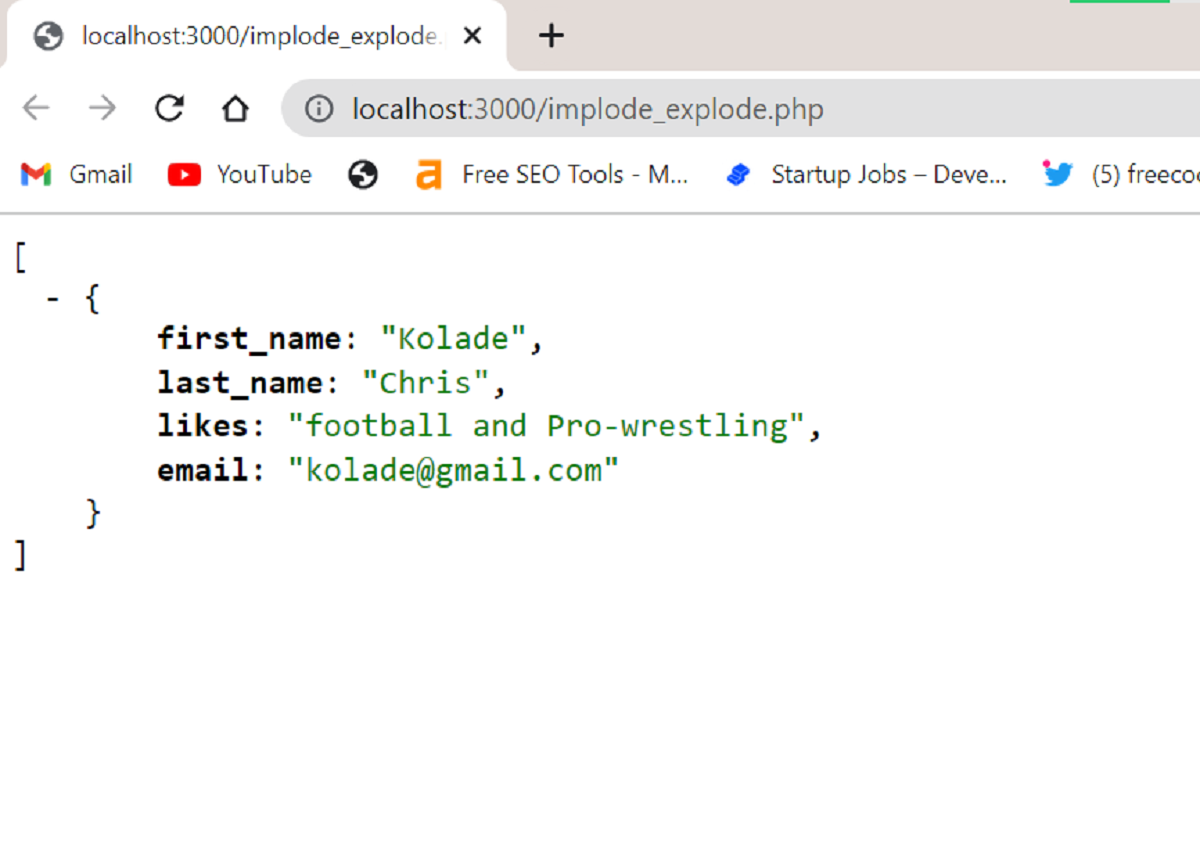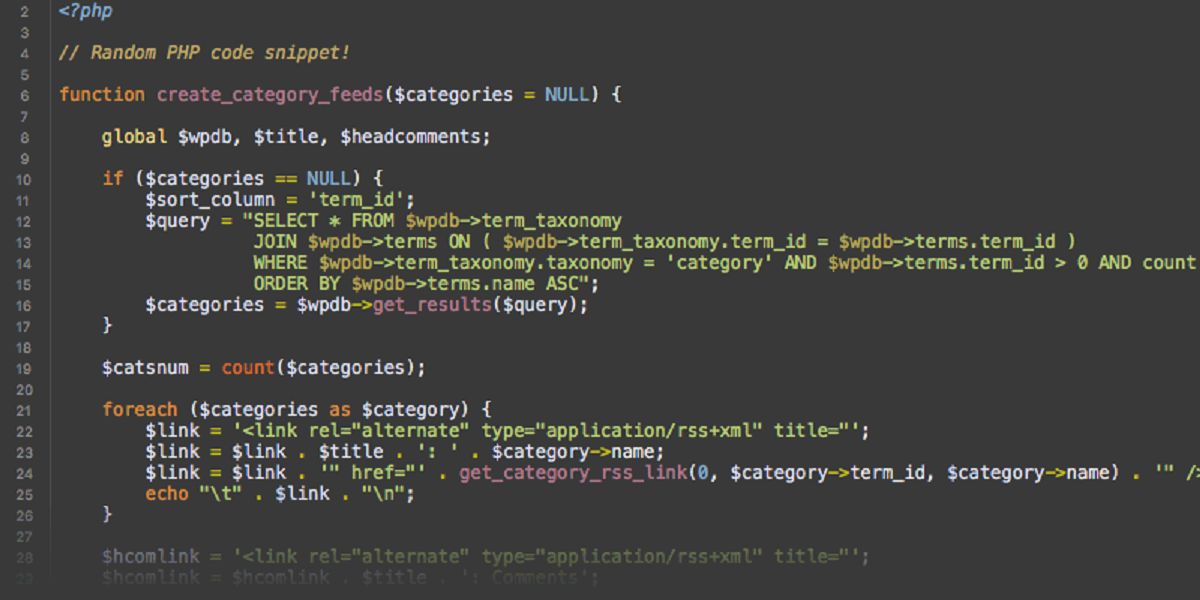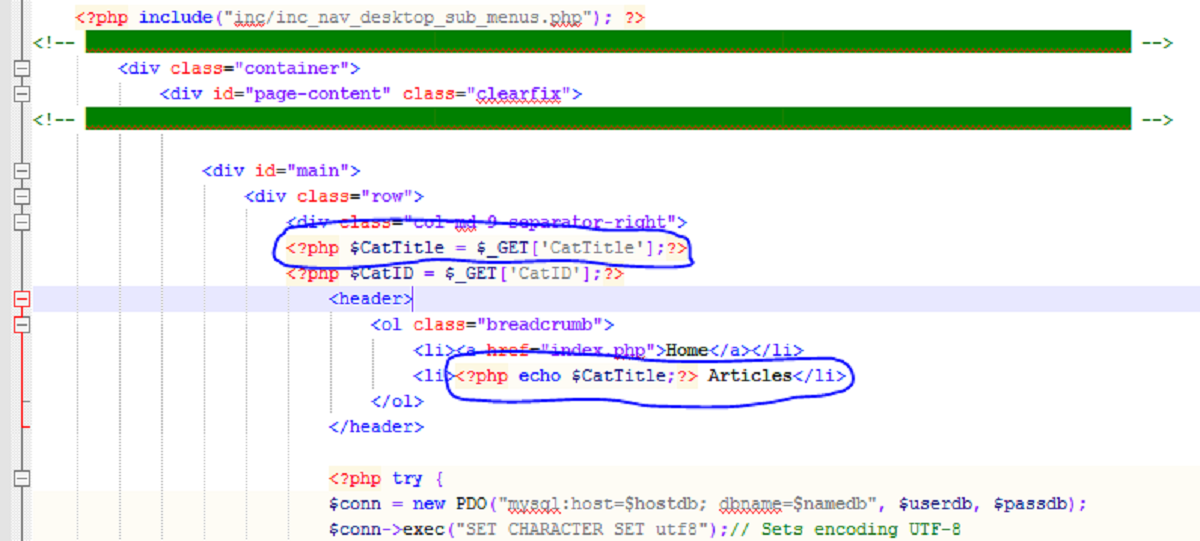Introduction
When working with strings in PHP, there often arises a need to split a string into smaller parts. Whether you are parsing user inputs, manipulating data, or performing text processing tasks, being able to split strings is essential. Fortunately, PHP provides several built-in functions that aid in splitting strings effortlessly.
In this article, we will explore different methods to split strings in PHP. These methods include explode(), str_split(), str_word_count(), preg_split(), and strtok(). Each method has its own unique characteristics and is suitable for specific splitting requirements.
We will examine the functionality of each method, discuss their parameters, and provide examples to demonstrate their usage. By the end of this article, you will have a solid understanding of how to split strings in PHP and be able to apply this knowledge in your own projects.
Exploding a String with explode()
One of the most commonly used methods to split a string in PHP is the explode() function. This function allows you to break a string into smaller chunks by specifying a delimiter.
The syntax of the explode() function is straightforward. It takes two parameters: the delimiter, which determines where the string should be split, and the string itself. Here is an example:
$string = "Hello,World,PHP";
$parts = explode(",", $string);
In the example above, we have a string “Hello,World,PHP”, and we want to split it into three parts based on the comma delimiter. The explode() function returns an array containing the individual parts of the string: “Hello”, “World”, and “PHP”.
It is important to note that the delimiter can be any character or sequence of characters. It does not have to be a single character like the comma in our example. For instance, you can split a string based on spaces, hyphens, or even specific words or phrases.
Another noteworthy feature of the explode() function is that you can limit the number of splits by specifying a third parameter. For example:
$string = "Apple, Banana, Cherry, Durian, Elderberry";
$parts = explode(",", $string, 3);
In this case, only the first three elements of the resulting array will be generated. The resulting array will contain “Apple”, ” Banana”, and ” Cherry, Durian, Elderberry”. This can be useful when you only need a specific number of splits and want to ignore the rest of the string.
In summary, the explode() function is a versatile method for splitting strings in PHP. It allows you to break a string into smaller chunks based on a specified delimiter, and you can control the number of splits as needed. This function is particularly useful when dealing with comma-separated values (CSV), URLs, or any other structured data that requires splitting.
Splitting a String with str_split()
The str_split() function in PHP is used to split a string into an array of characters. This function is particularly useful when you need to iterate over each individual character in a string or perform operations on a per-character basis.
The syntax of the str_split() function is simple. It takes two parameters: the string to be split and an optional second parameter specifying the length of each chunk. If the second parameter is not provided, each character in the string will be treated as a separate element in the resulting array. Here’s an example:
$string = "Hello, PHP!";
$characters = str_split($string);
In the example above, the string “Hello, PHP!” will be split into its individual characters. The resulting array, $characters, will contain [“H”, “e”, “l”, “l”, “o”, “,”, ” “, “P”, “H”, “P”, “!”].
You can also specify the length parameter to split the string into chunks of a specific size. For example:
$string = "Hello, PHP!";
$chunks = str_split($string, 3);
In this case, the string will be split into chunks of three characters each. The resulting array, $chunks, will contain [“Hel”, “lo,”, ” PH”, “P!”].
It’s important to note that the str_split() function treats multibyte characters as individual elements. If you’re working with multibyte strings, consider using the mb_str_split() function instead.
Overall, the str_split() function provides a convenient way to split a string into individual characters or chunks of a specific length. Whether you need to iterate over each character or perform operations on smaller portions of the string, this function is a useful tool in your PHP toolkit.
Splitting a String into Words with str_word_count()
The str_word_count() function in PHP is a handy tool for splitting a string into an array of words. It can be used to extract individual words from a sentence, count the number of words in a string, or perform various word-related operations.
The syntax of the str_word_count() function is simple. It takes two parameters: the string to be split and an optional second parameter specifying the return type. If the second parameter is not provided, the function returns an array containing all the words in the string. Here’s an example:
$string = "Hello, PHP developers!";
$words = str_word_count($string);
In the example above, the string “Hello, PHP developers!” will be split into individual words. The resulting array, $words, will contain [“Hello”, “PHP”, “developers”].
If you only need the number of words in the string, you can specify the return type as 1. For example:
$string = "Hello, PHP developers!";
$wordCount = str_word_count($string, 1);
In this case, the function will return the number of words in the string, which is 3.
If you want to preserve the position of each word in the original string, you can specify the return type as 2. This will return an associative array where the keys represent the position of the words and the values contain the actual words. For example:
$string = "Hello, PHP developers!";
$wordPosition = str_word_count($string, 2);
In this case, the resulting array, $wordPosition, will be [0 => “Hello”, 6 => “PHP”, 10 => “developers”].
It’s important to note that the str_word_count() function considers a word to be a sequence of letters, regardless of any punctuation or symbols present. If you need to handle special cases or different word definitions, you may need to use regular expressions or custom functions.
In summary, str_word_count() is a convenient function for splitting a string into individual words in PHP. It offers flexibility in terms of the return type and can be a helpful tool for various word-related operations.
Splitting a String into Characters with preg_split()
The preg_split() function in PHP is a versatile tool that allows you to split a string into individual characters or chunks based on a regular expression pattern. This function is especially useful when you need to split a string into characters while also considering any specific patterns or conditions.
The syntax of the preg_split() function is straightforward. It takes three parameters: the regular expression pattern, the input string, and an optional fourth parameter to modify the behavior of the function. Here’s an example:
$string = "Hello, PHP!";
$characters = preg_split("//u", $string, -1, PREG_SPLIT_NO_EMPTY);
In the example above, the preg_split() function is used to split the string “Hello, PHP!” into individual characters by specifying an empty regular expression pattern //u. This pattern ensures that each character, including multibyte characters, is treated separately. The resulting array, $characters, will contain [“H”, “e”, “l”, “l”, “o”, “,”, ” “, “P”, “H”, “P”, “!”].
You can modify the behavior of the preg_split() function by providing the optional fourth parameter. For example, if you want to limit the number of splits, you can set the fourth parameter to a positive integer:
$string = "Hello, PHP!";
$chunks = preg_split("//u", $string, 3, PREG_SPLIT_NO_EMPTY);
In this case, the string will be split into three chunks. The resulting array, $chunks, will contain [“Hel”, “lo,”, ” PHP!”].
By using regular expressions as the splitting pattern, you have the ability to split strings based on more complex criteria, such as specific characters, substrings, or even custom patterns. This gives you greater flexibility and control when dealing with string splitting operations.
Overall, the preg_split() function is a powerful tool for splitting strings into characters or chunks based on regular expression patterns. With its flexibility and capability to handle multibyte characters, it is a valuable function to have in your PHP toolkit.
Removing Delimiters with strtok()
The strtok() function in PHP is commonly used to split a string into smaller parts while simultaneously removing specified delimiters. This function is particularly useful when you need to extract specific values or tokens from a string and discard the delimiters.
The syntax of the strtok() function is straightforward. The function takes two parameters: the input string to be tokenized and a string containing the delimiters. Here’s an example:
$string = "Hello, there, how, are, you?";
$delimiter = ",";
$token = strtok($string, $delimiter);
In the example above, the string “Hello, there, how, are, you?” is tokenized using commas (“,”) as the delimiter. The first call to strtok() returns the first token, “Hello”, and sets the string pointer to the next position. Each subsequent call returns the next token until there are no more tokens left.
You can iterate through the tokens by using a loop, as shown in the example below:
$string = "Hello, there, how, are, you?";
$delimiter = ",";
$token = strtok($string, $delimiter);
while ($token !== false) {
echo $token . "
";
$token = strtok($delimiter);
}
The output of the above loop will be:
Hello
there
how
are
you?
It’s important to note that the strtok() function keeps track of the state between calls. As a result, subsequent calls to strtok() without specifying the delimiter will continue parsing the string from where it left off. This feature allows you to tokenize a string with different delimiters or even change delimiters within the loop.
Furthermore, you can use strtok() to extract specific tokens based on certain conditions, filter out unwanted tokens, or manipulate the extracted values in various ways. The flexibility of this function allows for a wide range of use cases.
In summary, strtok() is a useful function in PHP for splitting a string into tokens while simultaneously removing specified delimiters. Its intuitive syntax and ability to preserve state between calls make it a powerful tool for extracting and manipulating data from strings.
Conclusion
Splitting strings is a common task in PHP that is required in various scenarios, from parsing user inputs to manipulating data and performing text processing tasks. In this article, we explored several methods to split strings in PHP, each with its own unique characteristics and use cases.
We started by learning about the explode() function, which allows us to split a string based on a delimiter and obtain an array of individual parts. This method is particularly useful for splitting strings with a consistent delimiter, such as comma-separated values or URLs.
Next, we discussed the str_split() function, which allows us to split a string into an array of individual characters or chunks of a specified length. This function is handy when we need to iterate over each character in a string or perform operations on a per-character basis.
For splitting a string into words, we explored the str_word_count() function. This function provides us with the ability to extract individual words from a sentence, count the number of words in a string, or obtain the position of each word.
We also covered the preg_split() function, which allows us to split a string by using a regular expression pattern. This method offers more flexibility, allowing for the splitting of strings based on complex criteria or custom patterns.
Lastly, we discussed the strtok() function, which not only splits a string but also removes specified delimiters. This function is useful when we want to extract specific values or tokens from a string and discard the delimiters.
By understanding these different methods of splitting strings in PHP, you now have a comprehensive toolkit to handle various string manipulation tasks. The choice of which method to use depends on the specific requirements of your project, whether it’s splitting by a consistent delimiter, extracting individual characters, or working with words in a string.
Remember to consider the unique characteristics of each method and choose the one that best suits your needs. Experiment with different functions and techniques to achieve the desired results. With practice and experience, you will become more proficient in manipulating and splitting strings in PHP.







